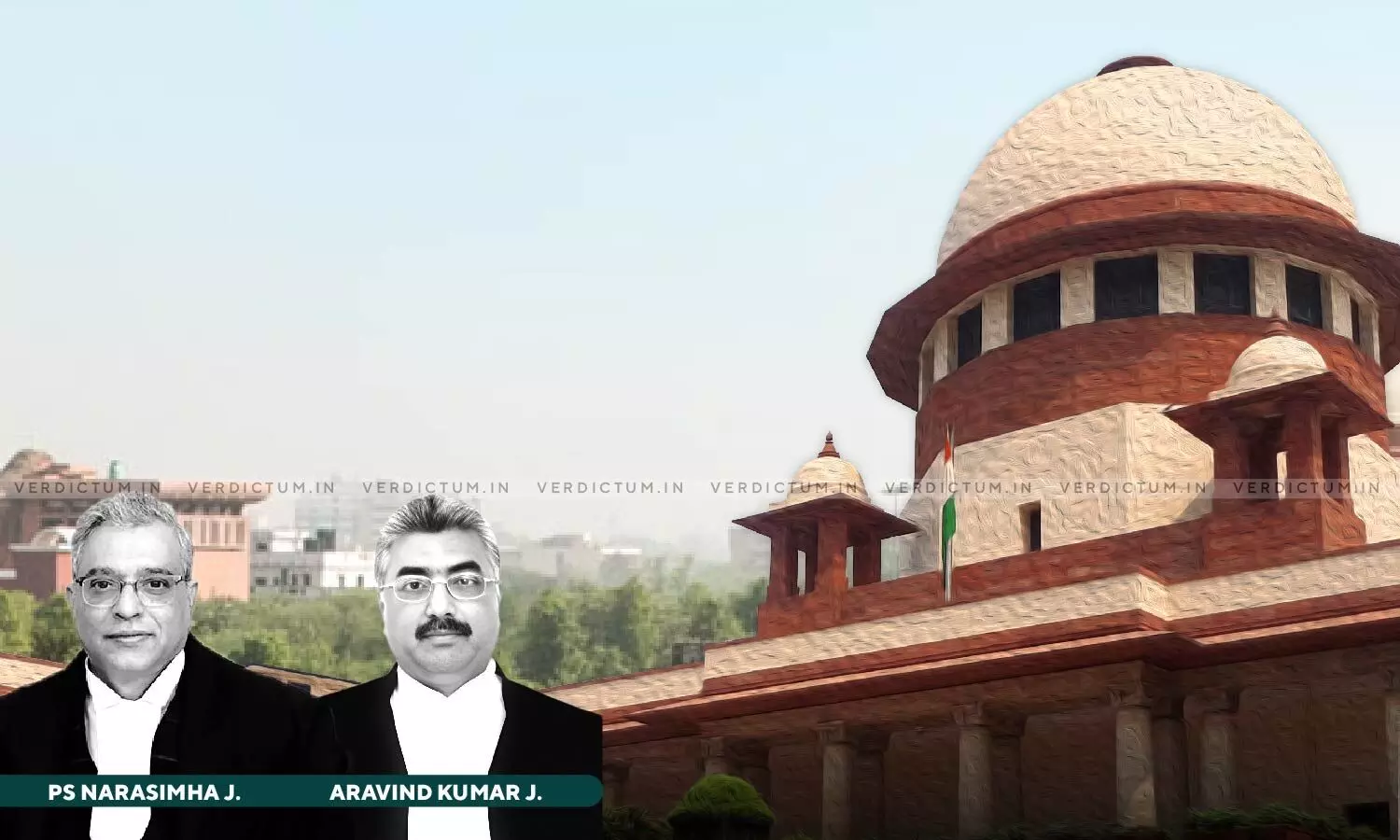
In Absence Of Prejudice Having Been Caused To Assessee, No Fault Can Be Laid At The Doors Of Authority: SC In Central Excise Case
 |
|The Supreme Court, in a case relating to Central Excise Act, 1944 (CE Act), remarked that in case of absence of prejudice having been caused to the assessee, no fault can be laid at the doors of the authority.
The Court was dealing with a batch of appeals preferred against the order of the Madras High Court by which the order of the Customs, Excise and Service Tax Appellate Tribunal (CESTAT) was set aside and the matter was remanded back to the tribunal for disposal of appeals.
The two-Judge Bench comprising Justice P.S. Narasimha and Justice Aravind Kumar emphasised, “In fact, the High Court has opined and rightly so that the said letter dated 20.01.2001 (with enclosures) which is claimed by the appellant has not having been furnished is only a ruse for not replying to the show cause notices and it would in no way prejudice the appellant’s claim, particularly in the background of reliance not having been placed by the respondent-authority for adjudicating the SCN’s and in the absence of prejudice having been caused to the appellant no fault can be laid at the doors of the respondent.”
Senior Advocate Shekhar Naphade represented the appellant while Additional Solicitor General N. Venkatraman and Advocate V.C. Bharathi represented the respondents.
Facts of the Case -
The appellant company was engaged in the manufacture of cotton yarn, polyester yarn, etc. and based on an information received that it had indulged in clearance of certain goods manufactured by it without payment of duty, resulted in the preventive unit of the respondent (Commissioner of Central Excise) visiting the unit and conducting stock challenge of the finished fabrics stocked in the bonded warehouse. Based on a prima facie and reasonable belief that excess quantities of stock were stored for illicit removal, the department seized the excess stock under mahazar and it was provisionally released on execution of general bond. It also resulted in the issuance of two show cause notices (SCNs) which resulted in two orders passed by the respondent. Being aggrieved by the orders, appeals were filed before CESTAT whereunder the tribunal set aside the orders with a direction to the respondent to provide a copy of the letter referred to in the SCNs to the appellant and to decide the matter afresh.
Thereafter, the respondent adjudicated SCNs afresh and by separate orders, raised the demand for payment of duty which resulted in both the orders being challenged via two appeals before CESTAT. The tribunal allowed the said appeals and set aside the respondent’s orders. It again directed to pass fresh orders and hence, the respondent filed an application under Section 35C (2) of CE Act for rectification of the order. However, the same was dismissed as withdrawn and then the respondent filed miscellaneous petitions before CESTAT for modification of the order whereby the respondent was directed to adjudicate the SCNs without relying upon the letter. Being aggrieved, the appellant filed appeals before the High Court resulting in the tribunal’s order being set aside and remanding the matter back for hearing the appeal afresh. Hence, the matter was before the Apex Court.
The Supreme Court in the above context of the case said, “Though, we are in complete agreement with the contention raised by Shri Shekhar Naphade that order of review or modification which came to be passed on 08.03.2010 is without sanctity of law deserves to be accepted in the light of the findings recorded at paragraph 25 to 29 of the impugned order and we affirm the same, yet for the reason that matter has now been remanded back to the tribunal for adjudicating the SCN’s afresh dissuade us from setting aside the impugned order.”
The Court further observed that the High Court has also rightly not remitted the matter to the adjudicating authority for considering the matter afresh and the findings of the High Court having been affirmed by it, yet it is appropriate to reserve the liberty to the appellant to urge all contentions before the tribunal including the one urged before it namely to demonstrate as to how prejudice has been caused to the appellant by non-furnishing of the said letter.
Accordingly, the Apex Court disposed of the appeals.
Cause Title- M/s Madura Coats Private Limited v. The Commissioner of Central Excise and Anr. (Neutral Citation: 2024 INSC 336)
Appearance:
Appellant: Senior Advocate Shekhar Naphade, Advocate Aniruddha Joshi, and AOR Rajeev Maheshwaranand Roy.
Respondents: ASG N. Venkatraman, AOR Mukesh Kumar Maroria, Advocates V.C. Bharathi, Padmesh Mishra, Udai Khanna, and Prashant Singh I.